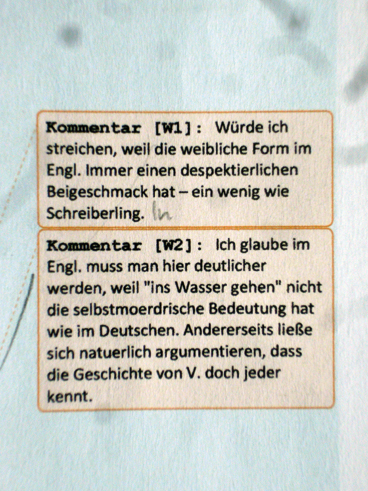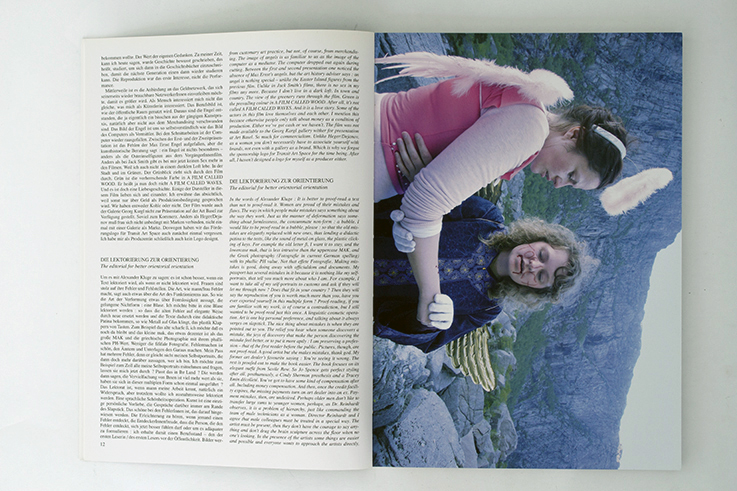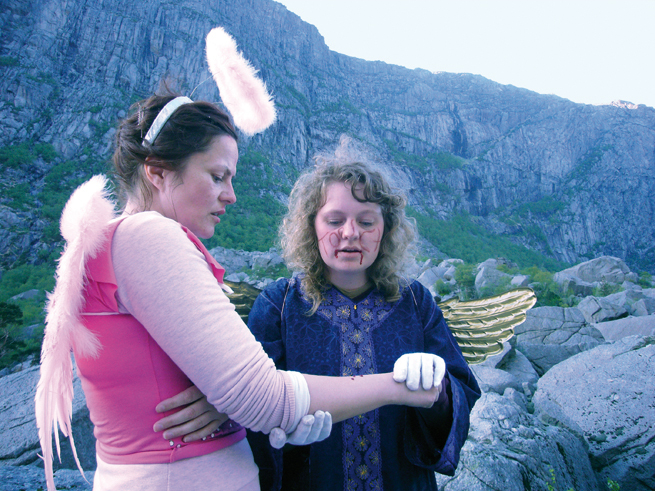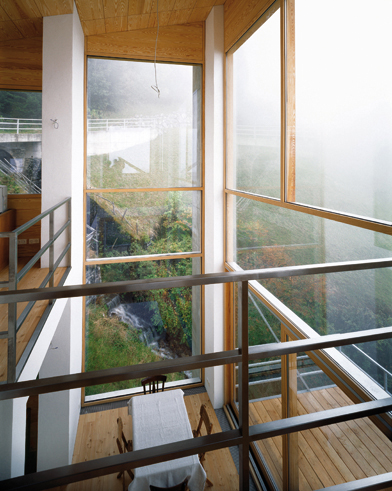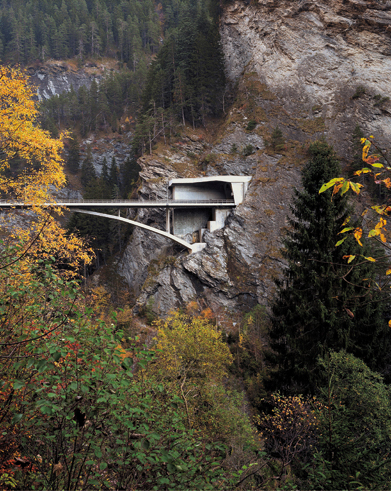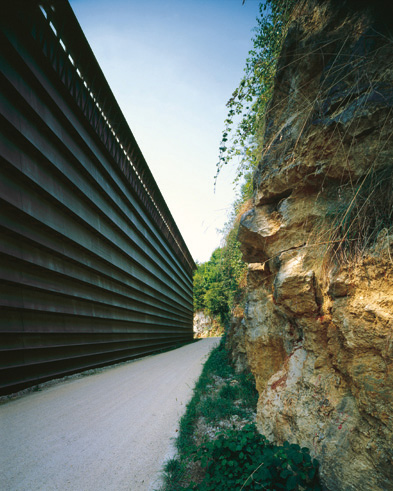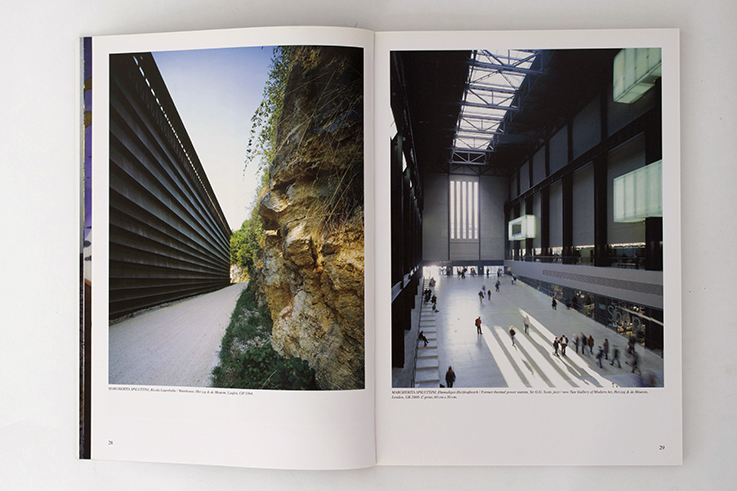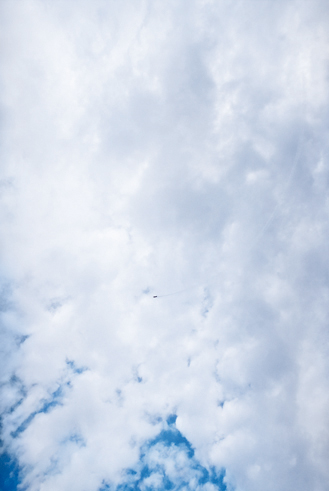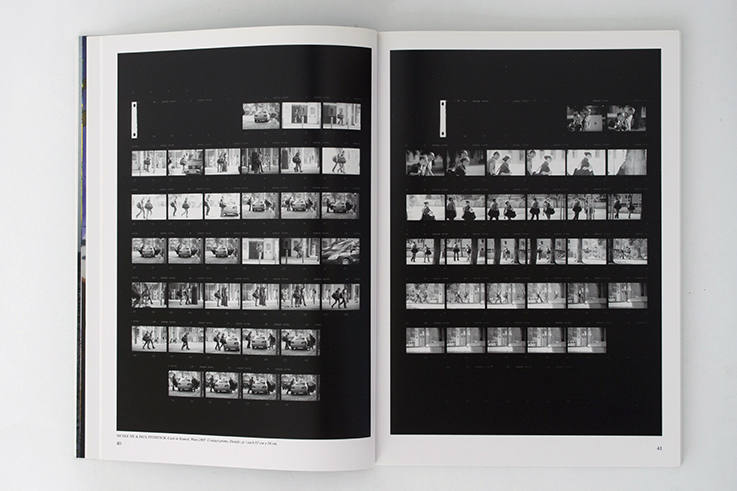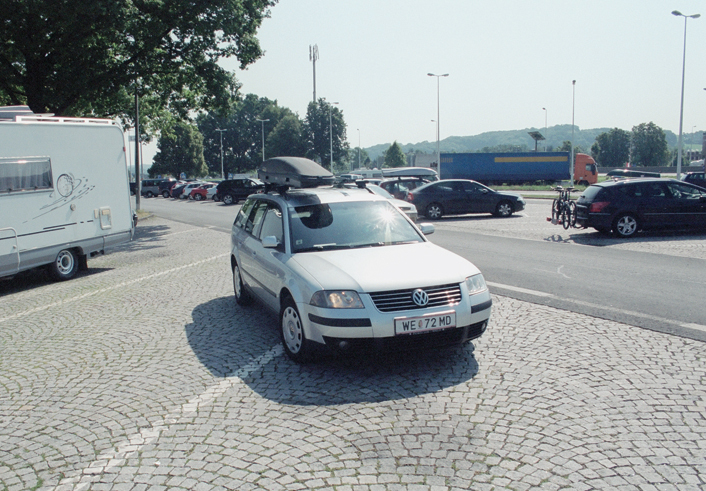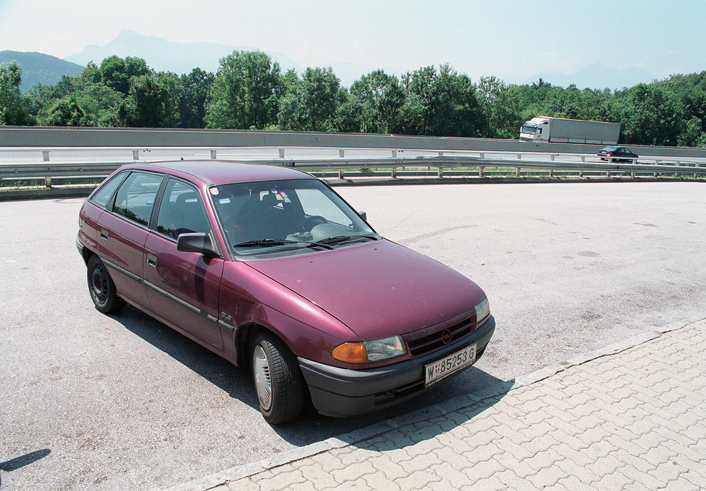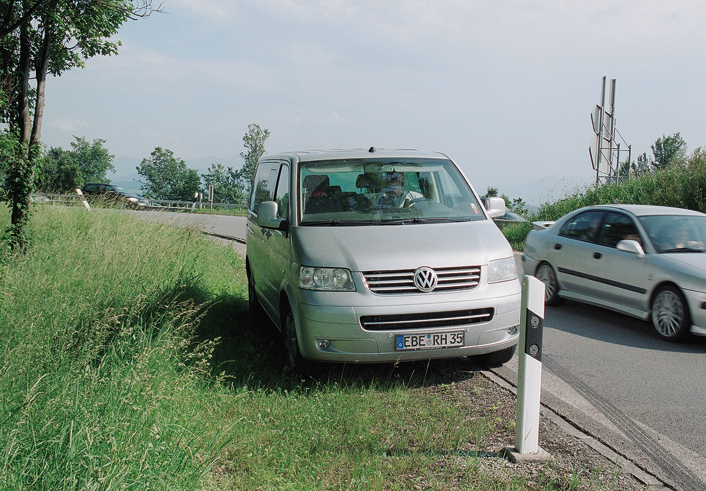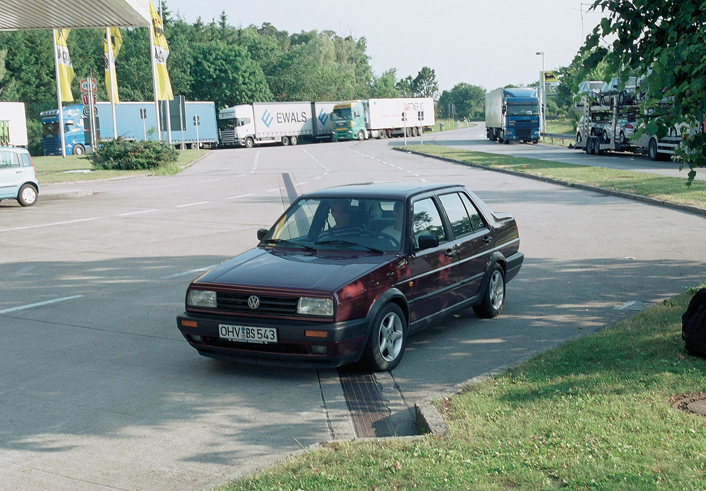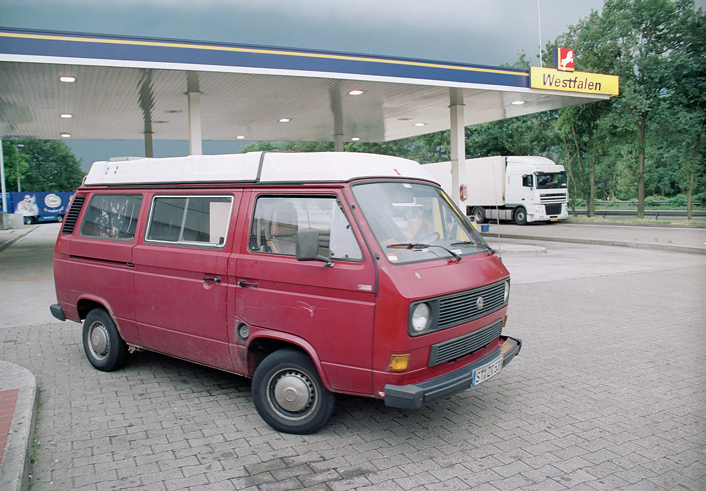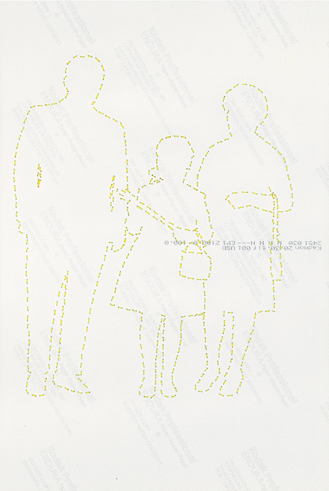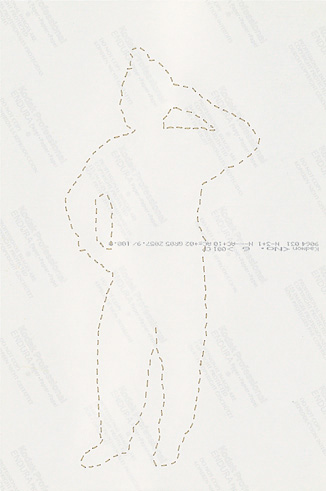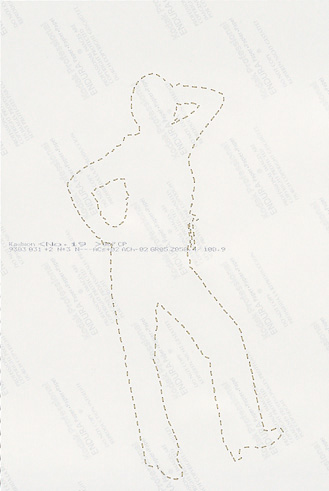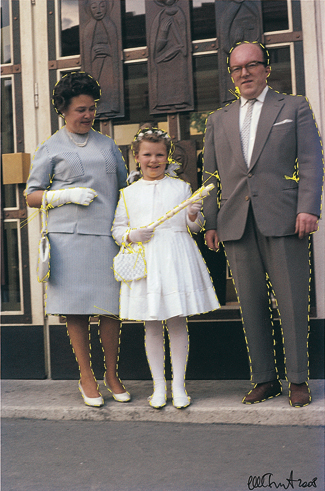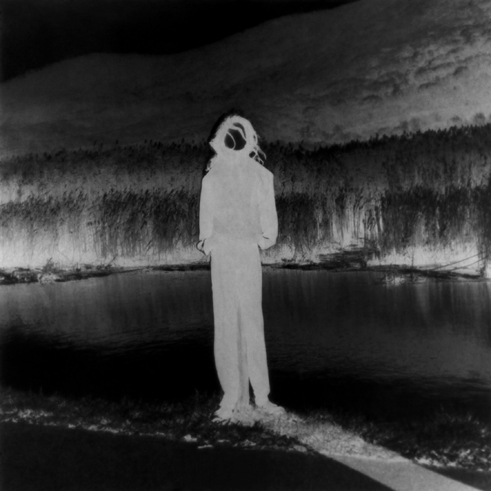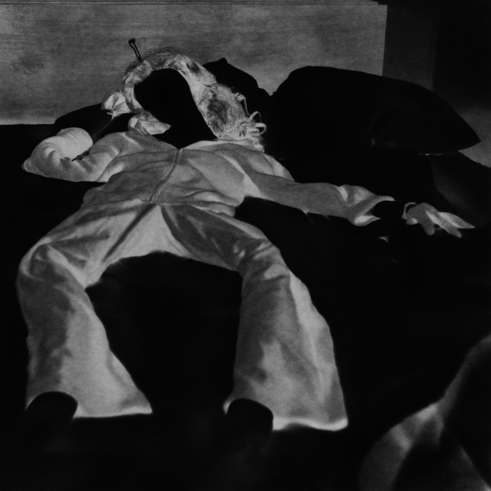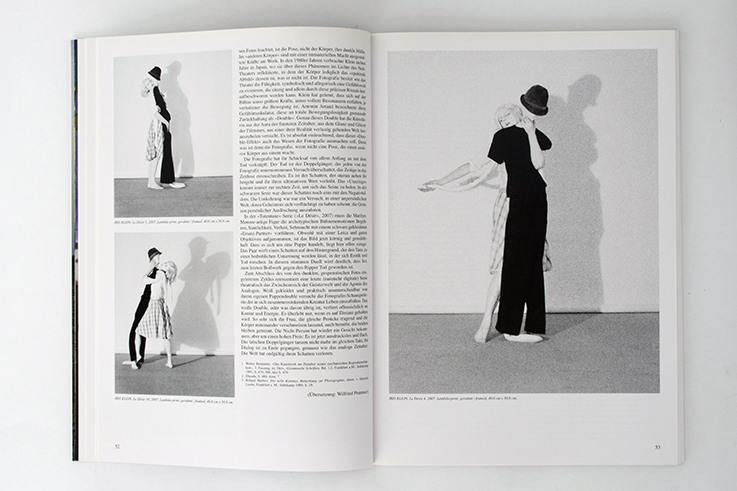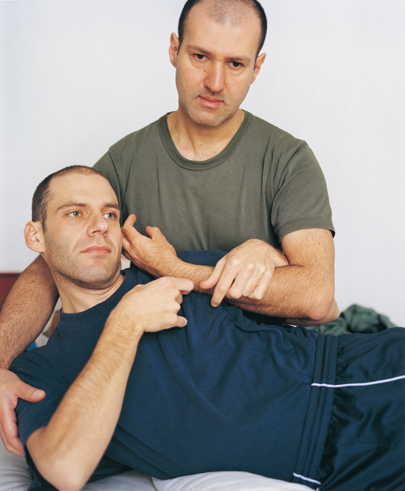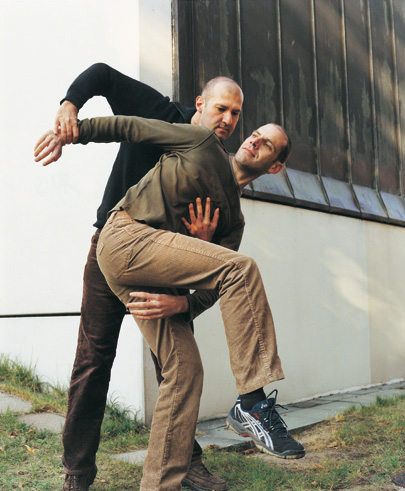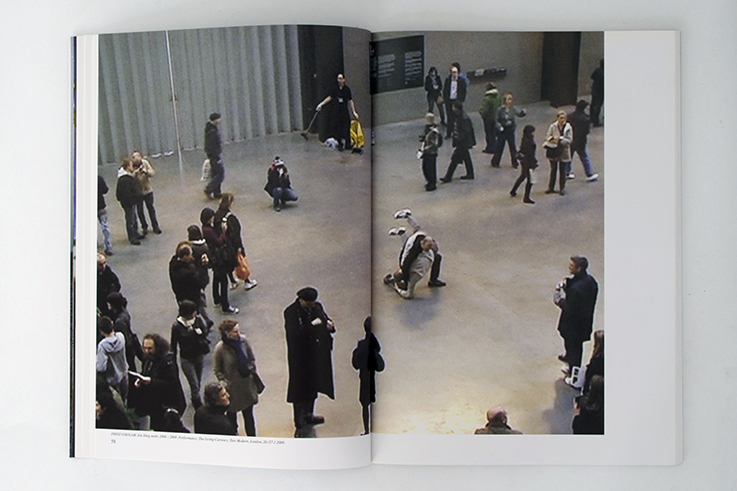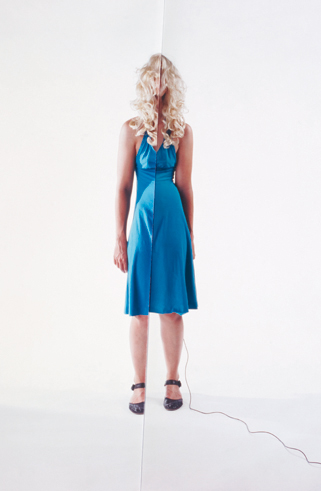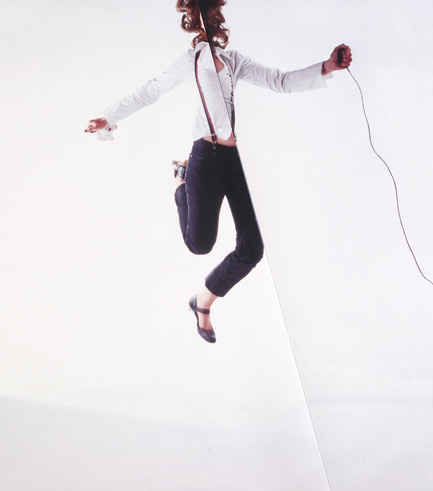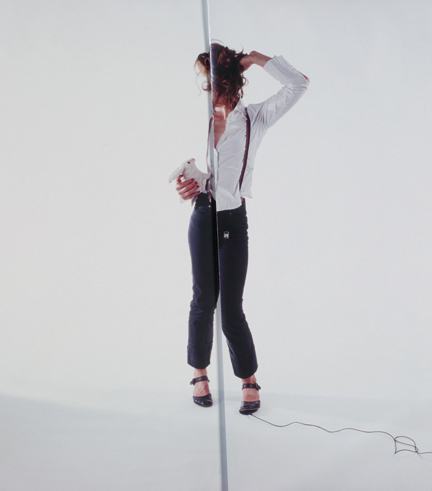Camera Austria International
104/103 | 2008
- ELKE KRYSTUFEK
NEIN. Why is there no genital grope and touch cinema? - ELKE KRYSTUFEK
- CHRISTIANE ZINTZEN
Margherita Spiluttini: Photgraphic Traces - MARGHERITA SPILUTTINI
- REINHARD BRAUN
Nicole Six & Paul Petrisch: On Airplanes, Images, Boundaries, Politics and Art - NICOLE SIX & PAUL PETRITSCH
- MICHAEL PONSTINGL
Sissi Farassat: Experiencing Posing, Living Posing - SISSI FARASSAT
- SYLVERE LOTRINGER
Iris Klein: Phantom Gestures - IRIS KLEIN
- MAREN LÜBBKE-TIDOW
Prinz Gholam - PRINZ GHOLAM
- MONIKA FABER
Caroline Heider: The Folded Girl - CAROLINE HEIDER
- JERRY TARTAGLIA
The Legacy of Jack Smith. That's The Way The Roachcrust Crumbles - ALICE CREISCHER, ANDREAS SIEKMANN
Angels of Censorship. On the Relationsip of Image Production, Hegemony and Violence I

Preface
Elke Krystufek’s methods of self-enactment, but also her questioning of her position as a subject in the exploitation system and »luxury business art« gave rise to the ironic-assertive title of her solo exhibition: »Responsible for a certain amount of luck«, that she designed at Camera Austria in Kunsthaus Graz. As if in response to this (self) asserted responsibility (that refers to the theme of the 2008 »steirischer herbst« festival), the title of her book, published in the Edition Camera Austria for this exhibition and containing the first collection of writings by the artist, is NEIN (No). In Elke Krystufek’s performative and staging methodology, as demonstrated by her text and image contribution to this issue too, everything becomes material: writing, language, photography, painting, film and sculpture combine to form a reflective scrutiny of the artistic stance and working method and, as a work, also illustrate the process of its creation.
Various forms of (self) enactment are the focal topic in this issue of Camera Austria, a double issue by way of exception. One of our aims was to bring together some of the works of artists whom we have featured in exhibitions over the past two years. During the last few weeks we have sent our subscribers the index of Camera Austria No. 1 – 100, an important reference of the content of one hundred issues of Camera Austria. In this issue of Camera Austria we would like to draw your attention to another central aspect of our work: exhibiting. That this issue also focuses on Austrian positions is due to the fact that the subject and techniques of staging are still an important aspect in contemporary Austrian art. This is demonstrated, for example, by the works of Austrian artists Iris Klein, Sissi Farassat or Caroline Heider, that revolve around staging techniques of the female body: All three artists focus on the image of the woman in their work. In his contribution, Sylvère Lotringer focuses on the works of Iris Klein, analysing her handling of the doll that is the focal point of her dramaturgy. In her text »The folded girl« Monika Faber, in turn, analyses Caroline Heider’s handling of models, whose photos she processes by making folds in the photographic paper. Photographic paper as a carrier of visual information is also the subject of the latest work by Sissi Farassat, who also works with strategies of refusal by emphasising the back of the photo. Michael Ponstingl provides an introduction to this conceptual work.
Entries
Forum
CORINNE L. RUSH
LISA AJTAY
NATHAN BAKER
DOROTHEE VON BODELSCHWINGH
LOTTE REIMANN
GÖRAN GNAUDSCHUN
RITA NOWAK
GREGOR SAILER
Exhibitions
Vojin Bakic und drei Interventionen von Luca Frei, Marine Hugonnier, Sean Snyder
Grazer Kunstverein, Graz
ULRICH TRAGATSCHNIG
Susan Hiller: Outlaw Cowgirl and Other Works
BAWAG Foundation, Wien
DENISE ROBINSON
Imagetransfer
Fotografis: collection reloaded
Bank Austria Kunstforum, Wien
ULRIKE MATZER
Die Weite des Eises. Arktis und Alpen 1860 bis heute
Albertina, Wien
SABINE SPILLES
Miklós Erdély und die Indigo Gruppe. Arbeiten aus den 1970er und 80er Jahren
Kisterem, Budapest
Georg Kargo Box, Wien
HANS-JÜRGEN HAFNER
Mladen Stilinovic
Galerie im Taxispalais, Innsbruck
HILDEGUND AMANSHAUSER
Wer will aufs Gesellschaftsbild?
Klaus Mettig: Don’t be left behind
Neue Gesellschaft für Bildende Kunst, Haus am Kleistpark, Berlin
Museum Kunst Palast, Düsseldorf
RAINER BELLENBAUM
Silke Wagner: Neueröffnung N.B.K.
Neuer Berliner Kunstverein, Berlin
RAIMAR STANGE
Hito Steyerl: Red Alert
Kunsthalle Winterthur
SØNKE GAU
Der Trust trumpft auf
Man Ray: Unbekümmert, aber nicht gleichgültig
Museo Colecciones ICO, Madrid
Fundación Caixa Galicia, A Coruña
Pinocathèque de Paris
Martin-Gropius-Bau, Berlin
Museo d´Arte Provincia di Nuoro
Fotomuseum Den Haag
CAROLIN FÖRSTER
Blicke und Begehren
Der Fotograf Herbert Tobias (1924 – 1982)
Berlinische Galerie, Landesmuseum für Moderne Kunst, Fotografie und Architektur, Berlin
Haus der Photographie, Deichtorhallen, Hamburg
REBEKKA REUTER
Sex brennt
Medizinhistorisches Museum der Charité, Berlin
SIGRID ADORF
Dies ist (k)eine Frau
Female Trouble. Die Kamera als Spiegel und Bühne weiblicher Inszenierung
Pinakothek der Moderne, München
ANDREA GNAM
Seeking for a Place of Oblivion
Art Pavillon, Zagreb
ANA VUKADIN
55. Carnegie International: Life on Mars
Carnegie Museum of Art, Pittsburgh
KIRSTY BELL
Szenarien statt Inszenierung
Manifesta 7
Rovereto/Bolzano/Trento/Fortezza, Trentino-Südtirol
MARION PIFFER-DAMIANI
PhotoEspaña 08
PHotoEspaña, Madrid
ALBERTO MARTÍN
Mode und Fotografie
39. Rencontres Internationales de la Photographie
Arles
INGRID HÖLZL
From Joburg: David Goldblatt, Pieter Hugo and Santu Mofokeng
Santu Mofokeng: >>Homeland Security<<, Johannesburg Art Gallery
David Goldblatt: >>Joburg<<, Goodman Gallery, Johannesburg
Pieter Hugo: >>Nollywood<<, Warren Sieberits, Johannesburg
Santu Mofokeng: >>Warren Siebrits, Johannesburg
RORY BESTER
Books
Aglaia Konrad: Desert Cities
JRP Ringier, Basel 2008
WOUTER DAVIDTS
Flüchtig
Beograd Gazela, Reiseführer in eine Elendssiedlung
Drava Verlag, Klagenfurt 2008
JOCHEN BECKER
Sture Chronologie – oder Dokument der Leidenschaften? Zwei unterschiedliche Bücher zum Archiv von Harald Szeemann im Tessin.
Edition Voldemeer, Zürich
Springer, Wien, New York 2007
GISLIND NABAKOWSKI
Ata Kando, Diana Blok, Sacha de Boer: The living other
Veenman Publishers, Rotterdam
MIRIAM ROSEN
Victor Burgin:
Components of a practice
Skira, Milan 2008
ANTONELLO FRONGIA
Imprint
Publisher: Manfred Willmann. Owner: Verein CAMERA AUSTRIA, Labor für Fotografie und Theorie.
All: Lendkai 1, A-8020 Graz.
Editors Graz: Christine Frisinghelli, Sabine Spilles
Assistence: Kathrin Lazarus, Heidi Oswald
Editor Berlin: Maren Lübbke-Tidow
Copy editing: Marie Röbl
Translations: Dawn Michelle d’Atri, Steve Gander, Andy Jelcic, Don Mader, Wilfried Prantner, Josephine Watson, Richard Watts

